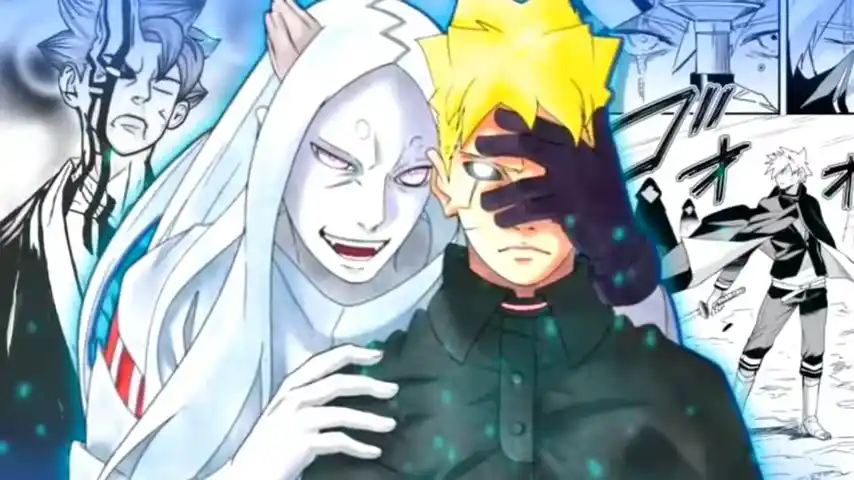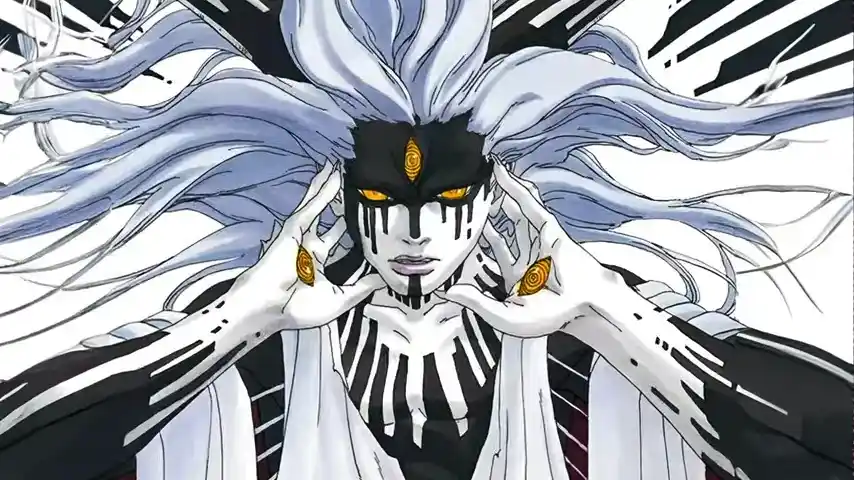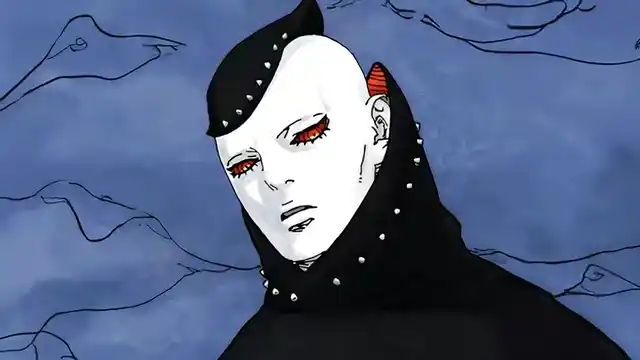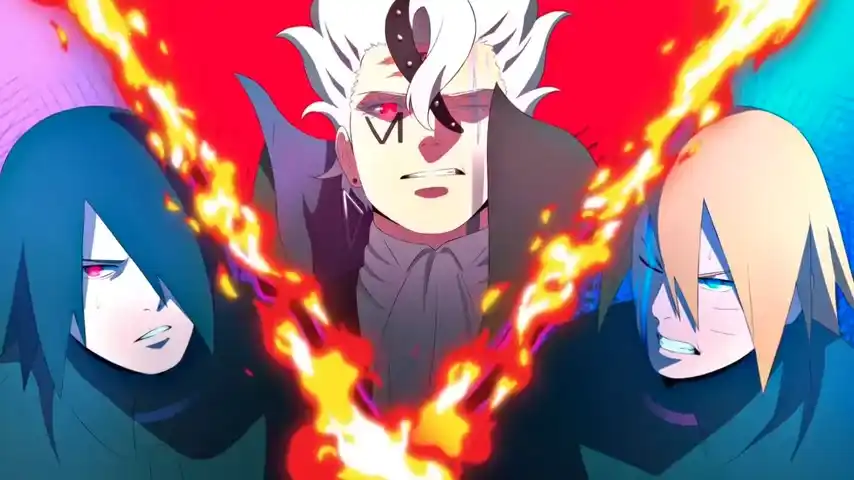The Dark Truth Behind Boruto, Uzumaki Clan, and Amado
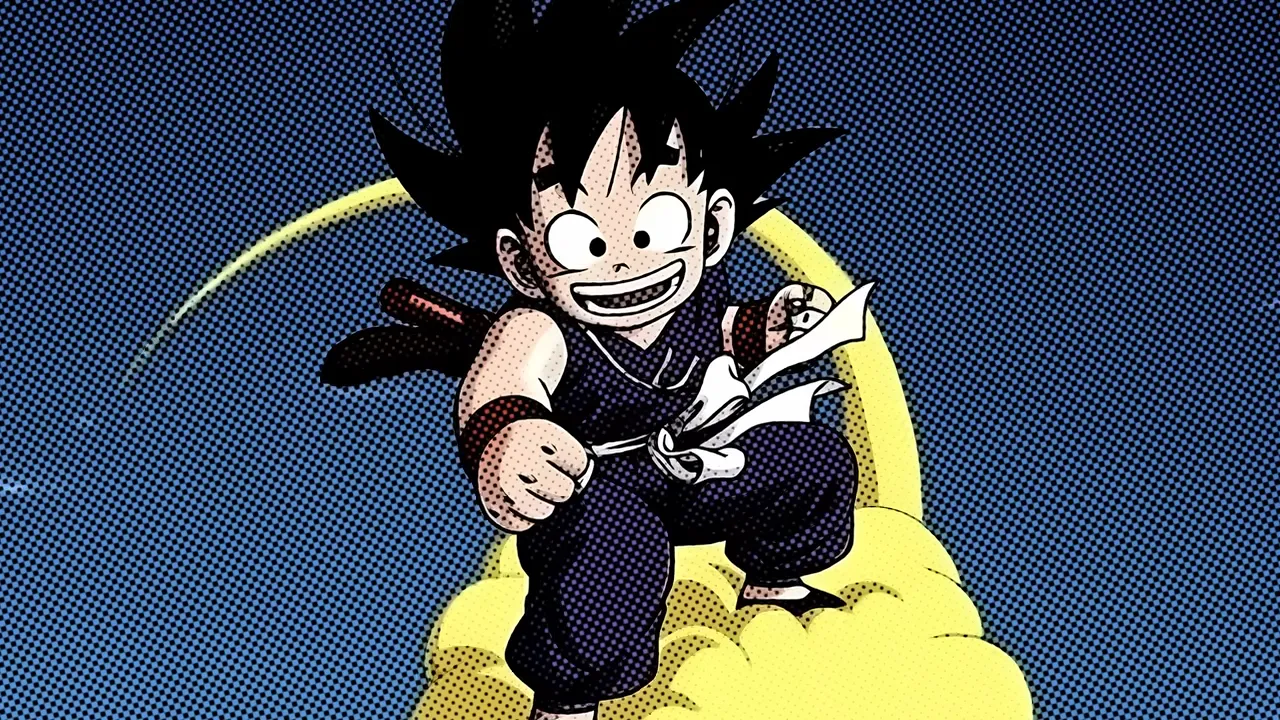
Gods, the Uzumaki Tragedy, and Amado’s Secret Plans
No, this isn’t just another theory about the downfall of the Uzumaki clan or yet another comparison between Boruto and Dragon Ball. It’s way darker and far more complicated. We’re about to dive into the deepest rabbit hole, where the tragedy of the Uzumaki, Amado’s schemes, and the cosmic games of the Otsutsuki all intertwine into a single story that will forever change how you see the Boruto universe. For a broader perspective on the cosmic connection of Otsutsuki and the Shinju.
We’re talking about planet-devouring beings, powers capable of rewriting reality itself, and the so-called “God Realm.” Yes, Boruto’s path feels similar to what Toriyama showed in Dragon Ball. The original Dragon Ball focused on martial arts, training, and tournaments, with the Kamehameha as the ultimate pinnacle of skill.
But then Dragon Ball Z arrived, and with Raditz’s entrance, everything flipped upside down. Suddenly, Goku wasn’t just a martial artist—he was an alien, a Saiyan—and the stakes skyrocketed to galactic levels. Naruto followed a similar trajectory: it was grounded in the shinobi world until Kaguya Otsutsuki appeared and shattered our entire understanding of chakra’s origins in an instant.
Suddenly, Naruto’s power wasn’t just about relentless training; it was legacy, destiny, and a connection to extraterrestrial beings. Boruto takes the next step down that path. The arrival of Shibai Otsutsuki—a being who transcended mortality and left behind Shinjutsu, techniques that are essentially divine miracles—pushes the narrative into completely new territory.
This is no longer just about the strongest ninja clashing; it’s a war between entities who control space, time, and reality itself. The concept of the “God Realm,” mentioned by Amado, fits perfectly into this picture. Explore Shibai’s divine legacy in depth. But what exactly is this “God Realm”? Is it an actual place—a higher dimension where ascended Otsutsuki like Shibai dwell? Or is it just a metaphor, a way of describing a level of power unreachable for mortals?
Amado used this phrase when he admitted he couldn’t resurrect his daughter, saying only gods could do that. And yet, Momoshiki, when talking about Omnipotence, mentions “gods” in the plural, claiming they already meddled with humanity’s history in the past. That raises the question: is Shibai truly alone? Or is there an entire pantheon of these entities, each with their own “realm”?
That possibility cracks open the door for massive worldbuilding, just like in Dragon Ball Super, where instead of a single God of Destruction, we were introduced to a council of deities ruling their universes.
The Uzumaki Clan and the Gods’ Interference
Here’s where the chilling question comes in: if these gods exist and can alter history, what if they already have? And what if one of their interventions caused one of the greatest tragedies in shinobi history—the destruction of the Uzumaki clan?
We were always told that Uzushiogakure was destroyed because other nations feared their unmatched skill with Fuinjutsu. They were feared, so they were wiped out. Sounds reasonable enough, but that explanation always felt incomplete. Who exactly carried it out? And how could such a powerful nation, directly related to the Senju, be erased so easily—leaving behind only a handful of scattered survivors?
Now imagine a far darker scenario. At one point, Momoshiki asked Boruto: “Have you ever wondered how many times humanity’s memories were tampered with by Otsutsuki who became gods?” Why did he ask Boruto that specifically—a descendant of the Uzumaki? Maybe it was a hint.
The Otsutsuki gods seem to embody three attributes that line up eerily well with theological concepts of God:
- Omnipotence – the ability to create anything from nothing (Eida’s power).
- Omniscience – complete knowledge of past, present, and future (the Shinjutsu Foresight).
- Omnipresence – the ability to be everywhere at once (Eida’s Senrigan).
Add immortality via Karma, and the picture is complete.
Now picture an Otsutsuki god with unrestricted Omniscience. Using Foresight with no limits, he could scan through infinite possible futures. According to the “Infinite Monkey Theorem,” such a god would eventually stumble upon a future where his clan loses. And what if, in one of those futures, he saw the Uzumaki clan— with their immense life force and unparalleled sealing techniques—evolving to the point where they could seal away the Otsutsuki themselves, permanently bypassing Karma resurrection? See more on breaking omnipotence in theory.
For the Otsutsuki, that would be an existential threat.
The solution? Eliminate the threat before it ever manifests. Using Omnipotence, the Otsutsuki gods wouldn’t just attack the Uzumaki. They would rewrite reality itself—altering the perception of the entire world, implanting fear and hatred toward a clan that was once respected.
Allies turned into enemies, sparking the war that erased the Uzumaki from history, leaving only fragments and vague legends. That’s why no one ever named clear culprits—their memories had been falsified. The entire history is a lie.
And in this context, Boruto Uzumaki stops being just the Hokage’s son. He becomes an anomaly—a leftover element from an equation that was erased, destined to challenge the programmer-gods who rewrote his world.
Amado’s Role and Kawaki’s True Origins
If the Otsutsuki gods are the ancient manipulators, then Amado is their modern-day reflection. This enigmatic scientist always seems ten steps ahead, pulling strings from the shadows. His stated goal—reviving his daughter, Akebi—sounds noble, but the methods he uses are bone-chilling.
Everything unfolding in the story—Momoshiki’s awakening inside Boruto, Code’s rise, Eida’s Omnipotence activating—all of it feels like part of his meticulously planned script.
Now consider the most shocking theory: Akebi might actually be Kawaki’s mother, and Amado his grandfather.
At first glance, it sounds insane, but the evidence is striking. The physical resemblance between Kawaki, Amado, and Akebi. Amado’s desperate need for Kawaki specifically in the resurrection ritual. His obsession could stem from their DNA connection.
Reconstruct Kawaki’s past under this theory: Akebi raises Kawaki, but one day they’re attacked by shinobi. In protecting her son, she is fatally wounded and dies. Amado, her father and Kawaki’s grandfather, witnesses this tragedy. Broken by grief, he becomes obsessed with bringing her back, using Kawaki as the key to the Karma ritual.
This even explains Kawaki’s horrific childhood. His father, Kokatsu, may have fallen into alcoholism after his wife’s death, blaming Kawaki for it and abusing him. Thus, Kawaki’s hatred toward shinobi isn’t just about Jigen—it’s rooted in the loss of his mother.
Amado’s manipulations run even deeper. Perhaps he programmed Eida to “fall in love” with Kawaki, knowing her Omnipotence would be vital. Kashin Koji may have been his spy to push events in the right direction. Every cyborg he built may not just be a weapon—but a safeguard for his resurrected daughter.
His threat to Kawaki—“I’ll stop you with everything I have”—takes on a darker meaning: he’ll unleash all his creations against him.
Kawaki, Boruto, and the Clash of Philosophies
Kawaki’s power, drawn from Isshiki’s Karma, means once Akebi is resurrected, his Karma and dōjutsu would vanish. That would trap Naruto and Hinata in eternity with no hope of rescue. Thus, Kawaki refusing Amado’s deal isn’t selfish—it’s the only way to prevent eternal loss.
This transforms Amado from grieving father to potential world dictator. Naruto, the symbol of peace, would be gone. The only key to his prison lies with Akebi, carrying Isshiki’s power.
As events unfold, Kawaki will discover the truth—that all his pain and hatred trace back to Amado’s manipulation. His new mission will extend beyond destroying shinobi—he’ll seek to wipe out the Otsutsuki gods themselves.
Meanwhile, Boruto will learn his clan was erased by those same gods, making his and Kawaki’s tragedies parallel. Their paths collide in a philosophical war:
- Kawaki’s path: seize divine power to rewrite reality and create a world free of suffering.
- Boruto’s path: preserve freedom and free will, even at the cost of pain.
Their battle becomes one between absolute safety and true freedom—a war of broken souls twisted by destiny. Boruto’s hinted sacrifice may not just save the village but break the centuries-old cycle of divine interference, restoring humanity’s right to choose its path.
Final Thoughts and Questions
We’ve gone from a destroyed village to cosmic conspiracies, from a lost clan to sinister family secrets. Boruto’s story isn’t just a continuation—it’s a reimagining of everything we thought we knew. It’s a grand saga about how the lies of gods created both monsters and heroes, and how two “brothers” became central figures in a battle for the very essence of their world.
But now, the questions remain:
- Who is the true villain—Kawaki, Amado, or the Otsutsuki gods?
- Are Kawaki’s goals justified, even if his methods are horrifying?
- Can Boruto really break the cycle that began long before his birth?
- What is Amado’s greatest hidden secret?
The answers will define the future of the shinobi world.

